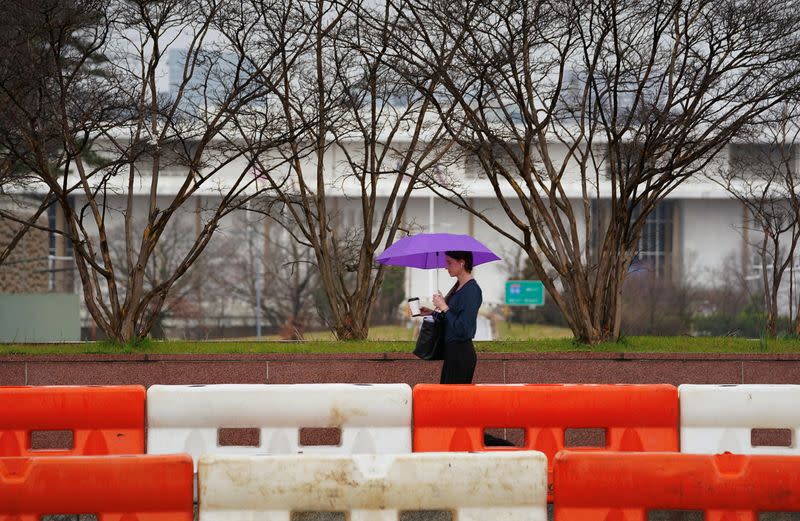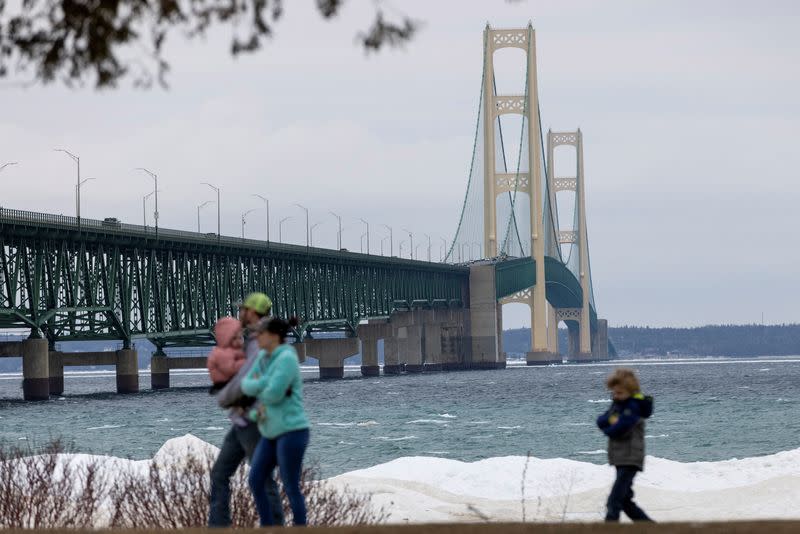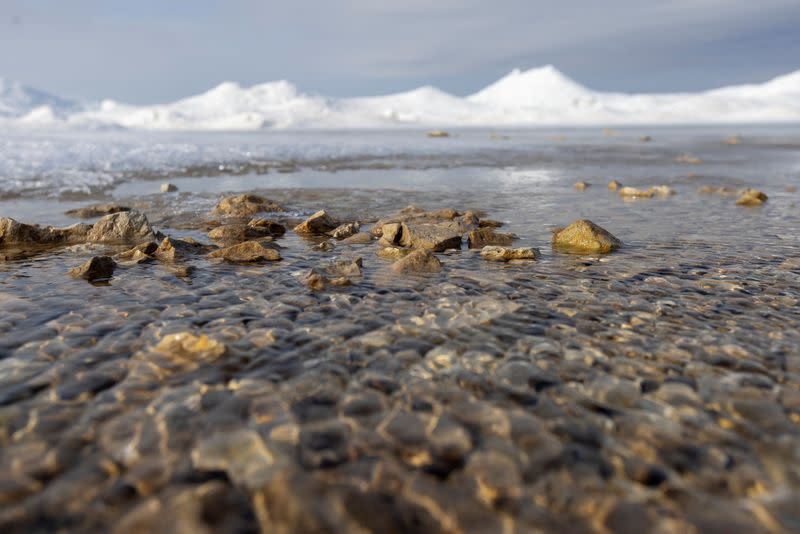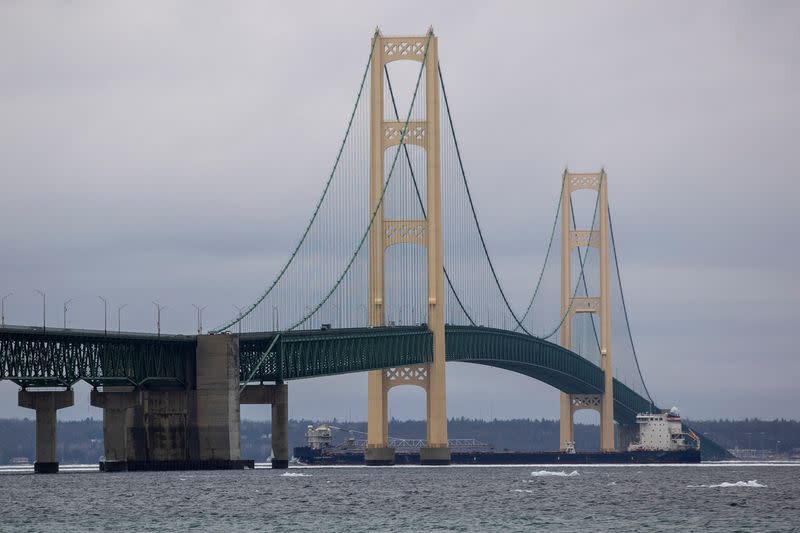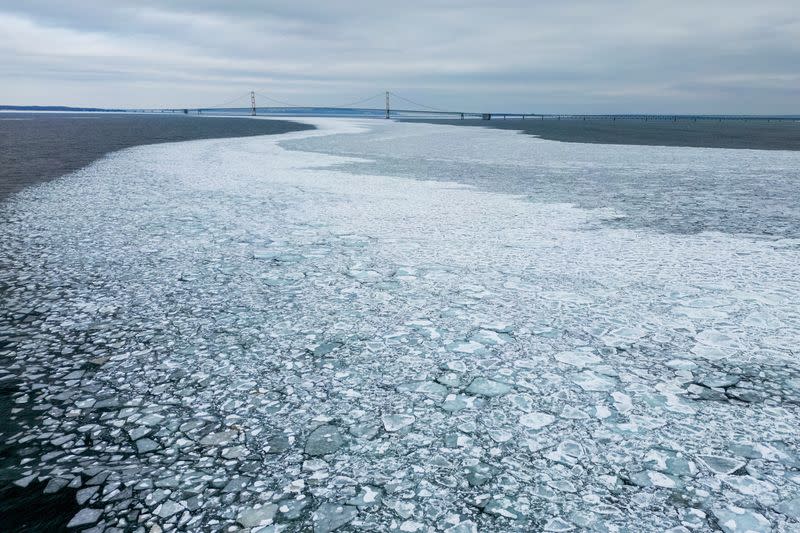Americans brace for more extreme weather as winter's bite returns
- Oops!Something went wrong.Please try again later.
By Brendan O'Brien
CHICAGO (Reuters) -A third of the United States faced the threat of severe weather on Wednesday as strong winds, snow and tornadoes threatened the Southeast, Ohio Valley and East Coast, while a fierce winter storm bore down on the Northwest.
A day after many Americans basked in a spell of summertime warmth in what is normally the coldest time of year, some 127 million people living in the eastern half of the nation were under wind advisories as colder weather returned. Gusts could reach 45 miles (72 km) per hour, the National Weather Service said.
In the Pacific Northwest, a massive winter storm threatens to bring coastal rains, heavy snow in inland regions and powerful winds heading into Friday and Saturday. White-out conditions in some locations will make travel difficult, if not impossible, the NWS said.
"There is a high chance of substantial, long-lasting disruptions to daily life in the higher elevations of the Sierra Nevada Mountains," the NWS said in its forecast, referring to the range straddling eastern California, where upward of 10 feet of snow and 100 mph winds were in the forecast.
Meanwhile, tornadoes tore through several populated areas in Illinois, Ohio and Michigan, the NWS said.
Columbus, Ohio, and its surrounding area was hit by tornadoes on Wednesday. A small county airport, homes and businesses were destroyed. No deaths or injuries had been reported by the afternoon.
The NWS said another tornado touched down on Wednesday some 200 miles north in Grand Blanc, Michigan, tearing a wide path of destruction through the town of 8,000 people. In Illinois, at least five tornadoes touched down Tuesday night.
Wednesday's national forecast was a dramatic shift from the unseasonably warm temperatures many Americans in the central U.S. experienced on Monday and Tuesday. Several spots in Texas registered record-breaking temperatures ranging as high as 100 degrees Fahrenheit (37.7 degrees C) over the two days.
Strong winds and relative low humidity in Texas were helping stoke four wildfires burning in the state's panhandle, where several small towns were evacuated.
Just hours after Chicago and other Midwestern cities also enjoyed record-breaking temperatures in the 70s-80s F (21.1-26.6 degrees C) range, the mercury plummeted into the 20-30F range with gusty winds for the Wednesday morning commute.
"It's the craziest weather I've ever seen and I lived here my whole life," said Kris Jares, 44, a manager at Buttermilk Geneva, a diner in Geneva, Illinois, some 40 miles west of Chicago.
Forecasters said it was difficult to link the remarkable weather patterns to human-induced climate change, but such extremes are becoming more frequent because of global warming. Scientists say the seasonal El Nino weather pattern causing the waters of the eastern Pacific Ocean to warm is also contributing to the unusual weather across the nation.
(Reporting by Brendan O'Brien in Chicago and Rich McKay in Atlanta; Editing by Frank McGurty, Deepa Babington and Richard Chang)
